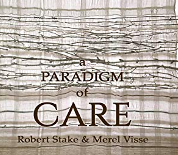Care for education
A Saving Grace
DOI:
https://doi.org/10.30827/relieve.v29i1.27074Keywords:
Care paradigm, ethics of care, responsive approaches to evaluationAbstract
This Special Issue on Education in the Present Age needs a reflection on what nurtures education, holds it together: care. This essay is an account of our experiences with care in education. It is based on our contribution to the International Doctoral Summer School in Granada in June 2022. Thinking about education and care is not new, but gained renewed attention in the pandemic, when the lines between students and teachers blurred because of the collective experience we were going through. Before that, since the early 199o’s, Nel Noddings’ work is key for those wanting to reaffirm the caring dimensions of education. She analyzed care and its place in ethics, and developed a view on the importance of care in schooling and learning in general. Since then, care ethicists further developed notions of what is good care, turning those to institutional and societal contexts that promote caring communities and societies. Our essay builds on that work. It is an encounter between Robert Stake’s notions of education and responsive approaches to evaluation and Merel Visse’s experiences with the field of care ethics, translated for a general audience of people who are not necessarily ethicists. Our encounter resulted in the book A Paradigm of Care, and in Spain, resulted in a leaflet with fourteen facets of care we shared with the graduate faculty and students. These insights are meant to evoke and stimulate reflection, deliberation and listening: important to care.
Downloads
References
Dewey, J. (1902). The child and the curriculum. University of Chicago Press, Phoenix Books, 1968.
Duckworth, E., Easley, J.A.Jr., D. Hawkins, D., & Henriques, A. (eds.) (1990). Science education: A minds-on approach for the elementary years (pp 61-95). Lawrence Erlbaum.
Gary, M.E. (2021). From care ethics to pluralist Ccre theory: Th estate of the field. Philosophy Compass 17(4). https://doi.org/10.1111/phc3.12819
Lundgren, U. P. (1972). Frame Factors and the Teaching Process. A contribution to Curriculum theory and theory of teaching. Almqvist & Wiksell.
Meier, D. (2011). A Review of “Listening to and Learning from Students”. Democracy & Education, 19(2). https://democracyeducationjournal.org/home/vol19/iss2/13
Noddings, N. (1984 and 2013). Caring: A Feminine Approach to Ethics and Moral Education and Noddings, N. (1992). The Challenge to Care in Schools.
Piaget, J., 1929. The child’s conception of the world. Harcourt, Brace.
Smidt, S. (2013). Introducing Malaguzzi: Exploring the life and work of Reggio Emilia’s founding father. Routledge
Stake, R.E., & Visse, M. (2021). A Paradigm of Care. Information Age.
Stake, R. E. (1992). A housing project school. In J. Nowakowski, M. Stewart and W. Quinn, editors. Monitoring implementation of the Chicago Public Schools’ systemwide school reform goals and objectives plan. (pp 330-349). North Central Regional Educational Laboratory.
Stenhouse, L. 1975. Introduction to curriculum research and development. Heinemann. (London: Schools Council Humanities Project).

Downloads
Published
How to Cite
Issue
Section
License
Copyright (c) 2023 RELIEVE – Electronic Journal of Educational Research and Evaluation

This work is licensed under a Creative Commons Attribution-NonCommercial 4.0 International License.
The authors grant non-exclusive rights of exploitation of works published to RELIEVE and consent to be distributed under the Creative Commons Attribution-Noncommercial Use 4.0 International License (CC-BY-NC 4.0), which allows third parties to use the published material whenever the authorship of the work and the source of publication is mentioned, and it is used for non-commercial purposes.
The authors can reach other additional and independent contractual agreements, for the non-exclusive distribution of the version of the work published in this journal (for example, by including it in an institutional repository or publishing it in a book), as long as it is clearly stated that the Original source of publication is this magazine.
Authors are encouraged to disseminate their work after it has been published, through the internet (for example, in institutional archives online or on its website) which can generate interesting exchanges and increase work appointments.
The fact of sending your paper to RELIEVE implies that you accept these conditions.













